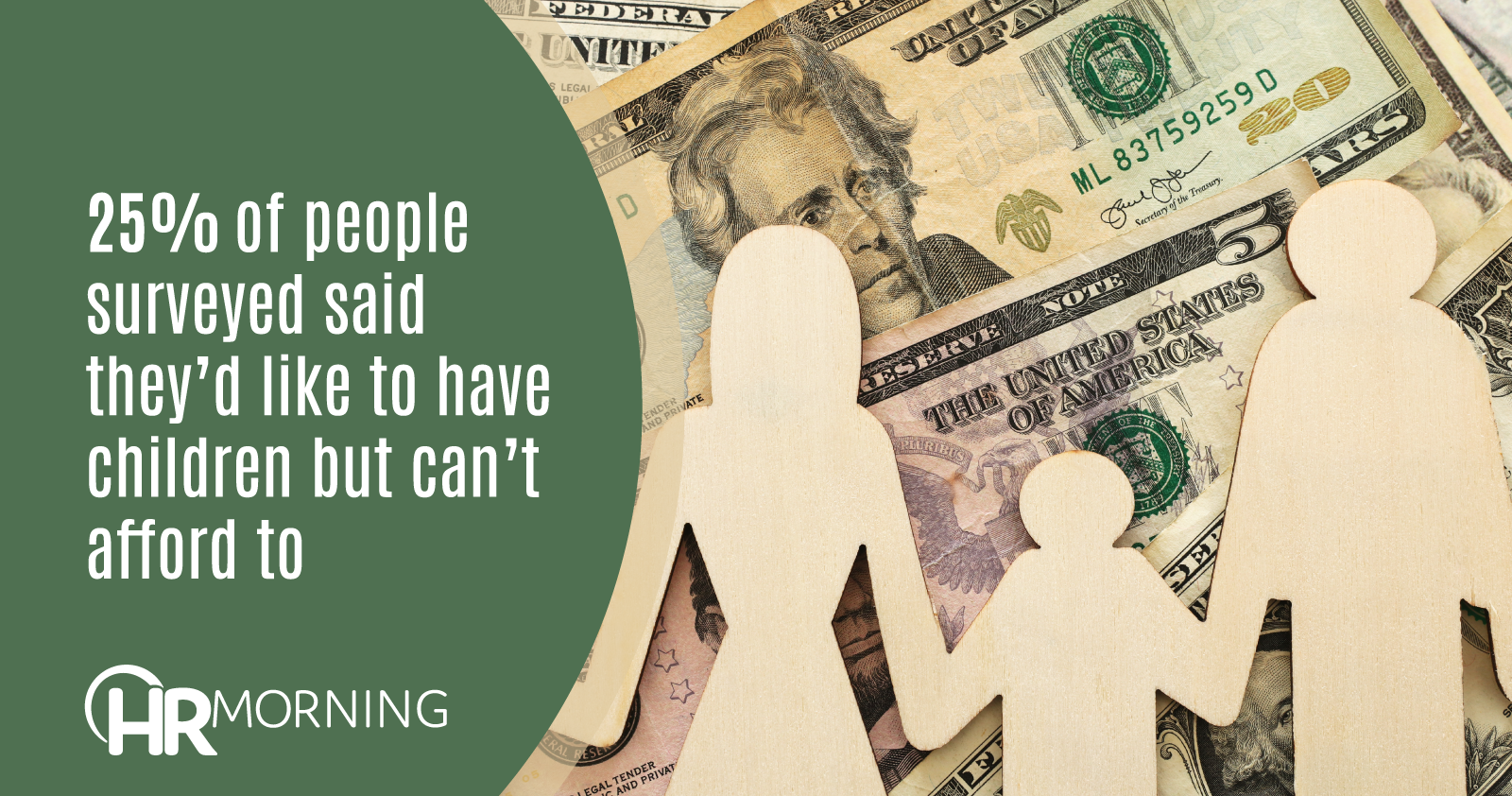Parental leave is a sought-after benefit by many U.S. workers. It gives them the much-needed time to bond with their new child whether it be an adoption or a biological birth. But once parental leave is over there’s the challenge of finding affordable child care. And that’s not an easy task.
One in four Americans say they’d like to have children, but can’t afford to, according to a new survey by Easy Offices, a provider of rental office space. The survey asked over 2,000 people how they felt about child care subsidies and parental leave.
Child care costs
Twenty-six percent of the respondents said they’d like to have children but couldn’t afford it. And the reason given by 24% of respondents for not having children was the cost of child care. Of course, where the person lived and how old they were, affected the answers.
For example, as for location, this was the answer given by:
- 24 % of respondents in Washington DC
- 21% in Detroit, and
- 20% in New York.
And not too hard to fathom, younger people were more likely to give this answer than older workers (41% of 16–24-year-old vs. 25% of 35–44-year-old).
And while the cost of child care deterring employees from having children may not concern employers, one in six people said the cost of child care has forced them to consider leaving their jobs. That’s something you don’t want to have to deal with.
Salary for perks?
You don’t want to lose valuable employees because they can’t afford child care. So, is the answer having employees contribute some of their salary for better parental perks like child care subsidies or paid leave?
Possibly! Twenty-seven percent said they’d accept a deal like that. And for those workers who already have a child under the age of 18, 37% said they’d take that deal.
Here’s another reason to up your parental perks: Twenty-seven percent said they’d think about taking a new, lower-salary job in return for better parental benefits.
Just how much are these employees willing to contribute in exchange for child care vouchers?
Ten percent of their salary, and the same number was given for paid parental leave. The interesting factor about this part of the survey was it varied in age, but not the way you might think:
- People who made under $20,341 said they’d contribute 9% of their salary for paid parental leave
- Those in the $20,341-$33,901 band would contribute 8%, and
- Respondents in the highest bracket (over $101,700) would contribute up to 12%.
How much time is reasonable?
How much leave do they feel new parents (mothers, fathers and adoptive parents) are entitled?
Not surprising mothers got the most time at 14.1 weeks. Fathers got 10.6 weeks, and adoptive parents 11 weeks.
While the pandemic seems to be lessening, many businesses are still struggling to stay fully staffed. Bumping up your parental perks could be one way to attract and retain employees.
Increasing parental leave and offering child care subsidies are two options, but so is offering remote work options and flex scheduling. People who are happier in their personal lives make happier employers.
If they see you’re taking measures to make their lives easier, it’ll increase their loyalty.



